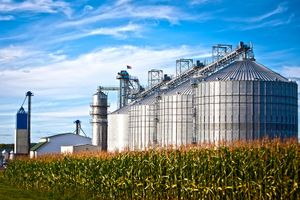CoBank-Ag Retailers Are Adequately Prepared to Ride Out the Storm
 Last year, producers of corn, soybeans and wheat faced a complicated growing season, characterized by bad weather and excessive flooding, trade tensions, low grain prices and margin pressures. Against this backdrop, the CoBank researchers asked the following question: How would the operational and financial hangovers of 2019 affect crop input retailers in 2020? To answer this question, those conducting the study analyzed consolidated U.S. farm financial data and studied CoBank’s proprietary customer database. They concluded that weather permitting, ag retailers are reasonably well positioned for an improved outlook on sales and services this spring.
Last year, producers of corn, soybeans and wheat faced a complicated growing season, characterized by bad weather and excessive flooding, trade tensions, low grain prices and margin pressures. Against this backdrop, the CoBank researchers asked the following question: How would the operational and financial hangovers of 2019 affect crop input retailers in 2020? To answer this question, those conducting the study analyzed consolidated U.S. farm financial data and studied CoBank’s proprietary customer database. They concluded that weather permitting, ag retailers are reasonably well positioned for an improved outlook on sales and services this spring.
Report’s key points:
1. Agricultural retailers are on relatively firm footing as they prepare for spring following last year’s complicated agronomy season, according to our analysis of CoBank’s proprietary borrower database.
2. The data indicates that farmer prepayments, accounts receivables, and delinquency trends reported by CoBank farm supply cooperative customers remain in line with 2018, indicating a stable-to-improved outlook for agronomy sales and services.
3. Ag retailers’ inventories of seeds, agrochemicals, and fertilizer should meet customer needs during the 2020 planting season, which is expected to see an expansion in planted corn and soybean acres.
4. Adverse weather and specifically flooding remain elevated risk factors this season with forecasts for above-average precipitation this spring, on top of already saturated soils. Agronomy sales and service could take a hit if weather once again leads to high prevented planting.
5. COVID-19’s global spread may continue to impact supply chains and the availability of certain imported crop inputs retailers rely upon in the short-term, while also potentially affecting commodity prices and farmers’ planting decisions.
To read the entire report click here.
Source: AgriMarketing
